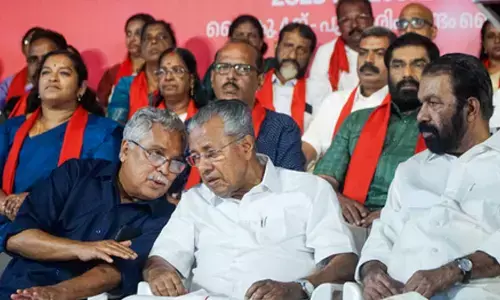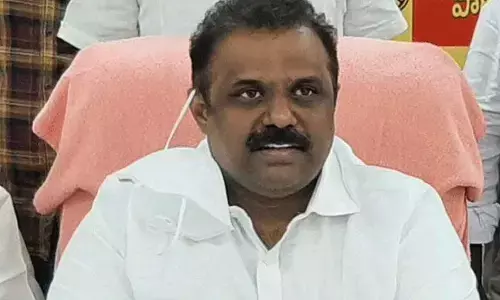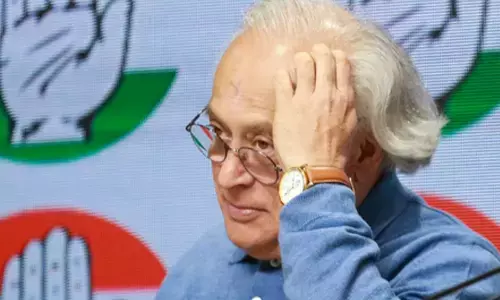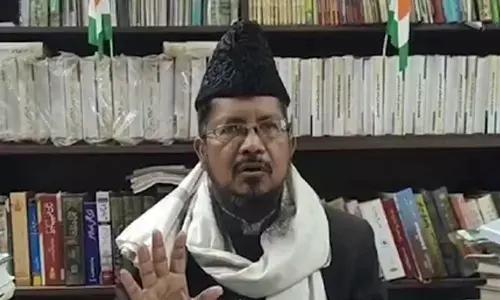The fire of the truth
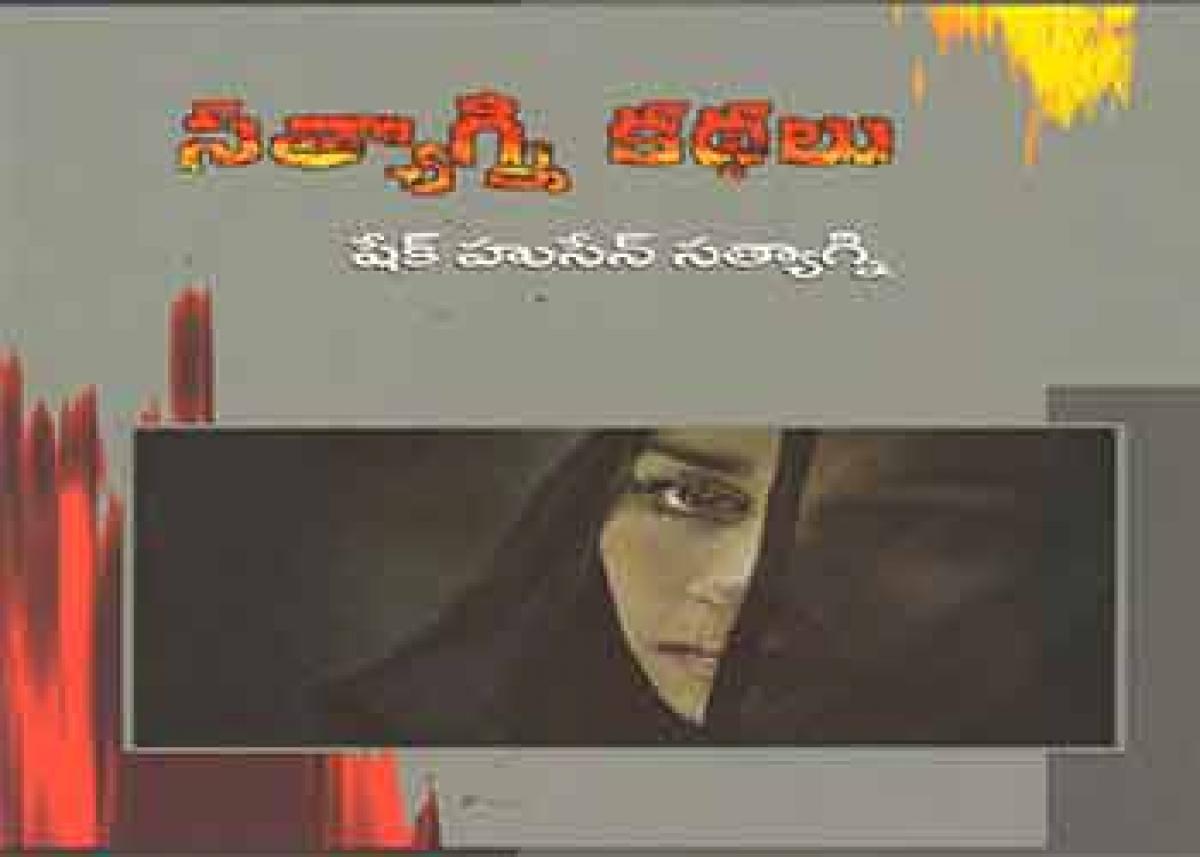
I am a student of the great poet Puttaparthi Narayanacharya and I am fond of traditional literature since my childhood. Till 1980s I wrote only metrical poems. I wrote a lyrical epic called ‘Bhagnaveena’ when I was a college student,” avows Shaik Hussain Sathyagni.
 Shaik Hussain, better known as Sathyagni, is the first minority writer of Telugu short stories, who focussed on problems of Muslim women in his works
Shaik Hussain, better known as Sathyagni, is the first minority writer of Telugu short stories, who focussed on problems of Muslim women in his works
I am a student of the great poet Puttaparthi Narayanacharya and I am fond of traditional literature since my childhood. Till 1980s I wrote only metrical poems. I wrote a lyrical epic called ‘Bhagnaveena’ when I was a college student,” avows Shaik Hussain Sathyagni.
Shaik Hussain is his name, and upon his guru Puttaparthi Narayanacharya’s suggestion, Sathyagni became his pen name. Becoming the first minority short story writer of Telugu literature is his remarkable achievement.
Born in a poor Muslim family in Kadapa a few years before India’s independence, he is a self-made man. Being attracted to communism during his student days, he became a leader of the workers afterwards. He observed the plight of the poor workers from close quarters. As he was interested in literature from his early days, he began to write stories about those poor workers. His first volume of short stories, ‘Agnisirassu’ was released in 1988.
Sathyagni talks of a time when Puttaparthi Narayanacharya was the chief guest to an event that had renowned short story writer Madhuranthakam Rajaram and the reputed critic Vallampati Venkata Subbaiah as the guests of honour.
“Speaking on that occasion, Rajaram and Venkatasubbaiah observed that many wrote about various aspects of life in contemporary times, yet not much has been written about the lives of Muslims who are a significant part of our society.
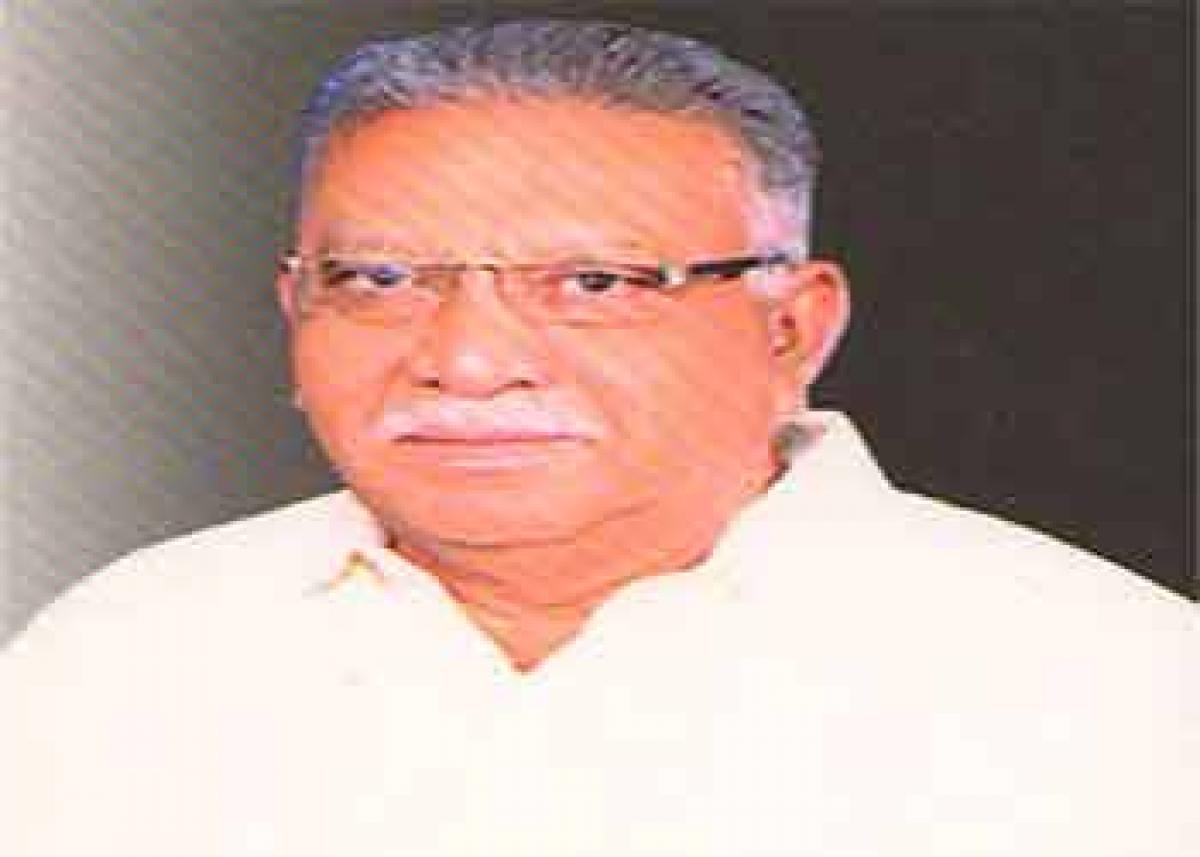 They thought that I can fill that gap, and it was like a clarion call to me that spurred my creativity in a new direction,” recalls Sathyagni. And the rest is history.
They thought that I can fill that gap, and it was like a clarion call to me that spurred my creativity in a new direction,” recalls Sathyagni. And the rest is history.
There were stories on Muslims even before him, but they were all written by non-Muslims. However realistic and credible they might be,
they lack the authenticity of the first-hand experience as it is not easy to find out what really happens in the inner circles of the people concerned.
Though we live in neighbouring houses, we can’t understand their psyche due to the cultural differences, which are not easy to discern. Unless a person like Sathyagni relates it,
the others can’t understand the nuances and plights of their lives.Sathyagni focussed his attention more on the problems of Muslim women due to the customs like thalak, mutha and halaal.
In Islam, a man can divorce his wife by simply saying the word “thalak” three times. In a story, Yanthram, a husband gives divorce to a wife because she begot female babies thrice. The victimised woman gains education, gets a law degree and stands by the side of many vulnerable women like her. That woman, a lawyer, declares, “Divorce has become very common.
Islam never approved thalak without a valid reason. Divorce can be taken only when the couple doesn’t love each other and when there is no possibility of a compromise. It is not a prerogative for a man to renounce his wife on trivial pretexts.”Every man who wants to divorce his wife accuses her of adultery. Sathyagni portrays a valiant woman, Nadira, who drags her husband to the court when he gives her the notice of thalak. She says, “Who cares for your thalak? I am giving you khula.”
Khula is the word that a Muslim woman pronounces thrice to divorce her husband. Another woman, Pathima, in a different story, marries her childhood friend after the death of her first husband. She affirms, “I need not take the permission from anybody to get married again. I know that Islam allows a widow to be remarried. I also know that my elders wouldn’t permit me to be married as they don’t hesitate to make me a scapegoat for the welfare of somebody else. But, I don’t care about them.”
Historical accounts recount that a system called Mutha was evolved to provide sexual gratification to soldiers in warfare. According to Mutha, a man can pay some money to the parents of a girl in order to spend some days with her and then divorce her after a specified time. Now the same system is exploited by the rich, thereby victimising poor women.
The news of selling of girls to Arab Sheiks is not a new one. In the story ‘Mutha’, Sathyagni portrays a bold girl who flees from her mother when she is forced to marry an Arab Sheik and instead marries the son of her aunt.Halaal is a system which has become a menace.
It is a law according to which, a wife who is divorced by her husband can marry him again only after getting married to another man and getting thalak from him too. In the story ‘Halaal’, a husband unwittingly pronounces the word thalak thrice in fury. Then the religious heads declare that he has divorced his wife and so they are not allowed to live together unless she procures halaal.
Sathyagni wrote stories condemning the atrocities on the poor and downtrodden in the hands of the state. He always stands by the side of the victims and never hesitates to criticise old and cruel systems that are responsible for their ordeals. He avows, “I don’t criticise the traditions and systems of Islam. But I show how these are misinterpreted and exploited by people with vested interest.”
That the solemn duty of literature is to unveil the truths of the innermost recesses of the society and to create a congenial world to man besides being an art form is amply illustrated in his works. Though he is the first writer from the Muslim minority, he has been successful in portraying his characters as representatives of the whole world.
In one of his stories, Juttuswamy, a lecturer in Telugu tells a student, “A writer should not be a romantic. He should never deviate from the reality. Literature is not meant for one individual. It is for the whole.” This is exactly the principle that Sathyagni followed in his stories.


